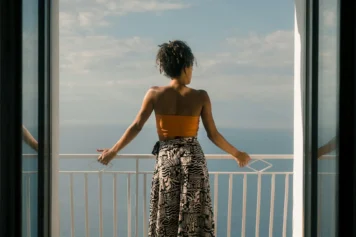The term paradigm-shifting is seldom used in regard to a Caribbean vacation.
But this is St. Lucia, and it is hardly your typical Caribbean vacation spot.
That this lush volcanic island has stayed largely below the radar is a minor miracle. Plenty of people have heard of St. Lucia—its reputation for beauty precedes it—yet relatively few have been. That’s too bad for them, because this former British territory (it gained independence in 1979) has a staggering variety of landscapes, from jungle-draped peaks and black-sand beaches to tranquil cocoa plantations; luxurious marinas to sleepy Creole villages. Diving, hiking, bird-watching, sailing, yachting, and sport-fishing are all superb here. As is eating: those verdant slopes and dense forests are the source of fabulous produce, a rarity in the Caribbean. Because of its diverse population (a mélange of African, Creole, Carib Indian, French, East Indian, and British), St. Lucia also has a colorful homegrown culture that’s surprisingly accessible to travelers—another Caribbean rarity. It is a small island, one-sixth the size of Rhode Island, yet whole swaths of it remain undeveloped and remote. The roads are so switchbacked that a drive from the northern to the southern tip, 27 miles as the blue-plumed jacquot flies, can take three hours.
This all may change very soon. A sweeping—and highly unorthodox—plan is in the works to take this relatively unsung gem to the next level. It could use the help: St. Lucia accounts for only a small slice of the Caribbean’s overall visitor numbers. And the Caribbean is hardly the juggernaut it once was: the region’s share of the global tourism market has dropped from 4.5 percent to 2.5 percent. If St. Lucia’s bold stroke hits the mark—an effort that will require billions of dollars and some two decades of development—its success could have broad implications for both the Caribbean and global tourism in general…
Read more: Travel and Leisure


